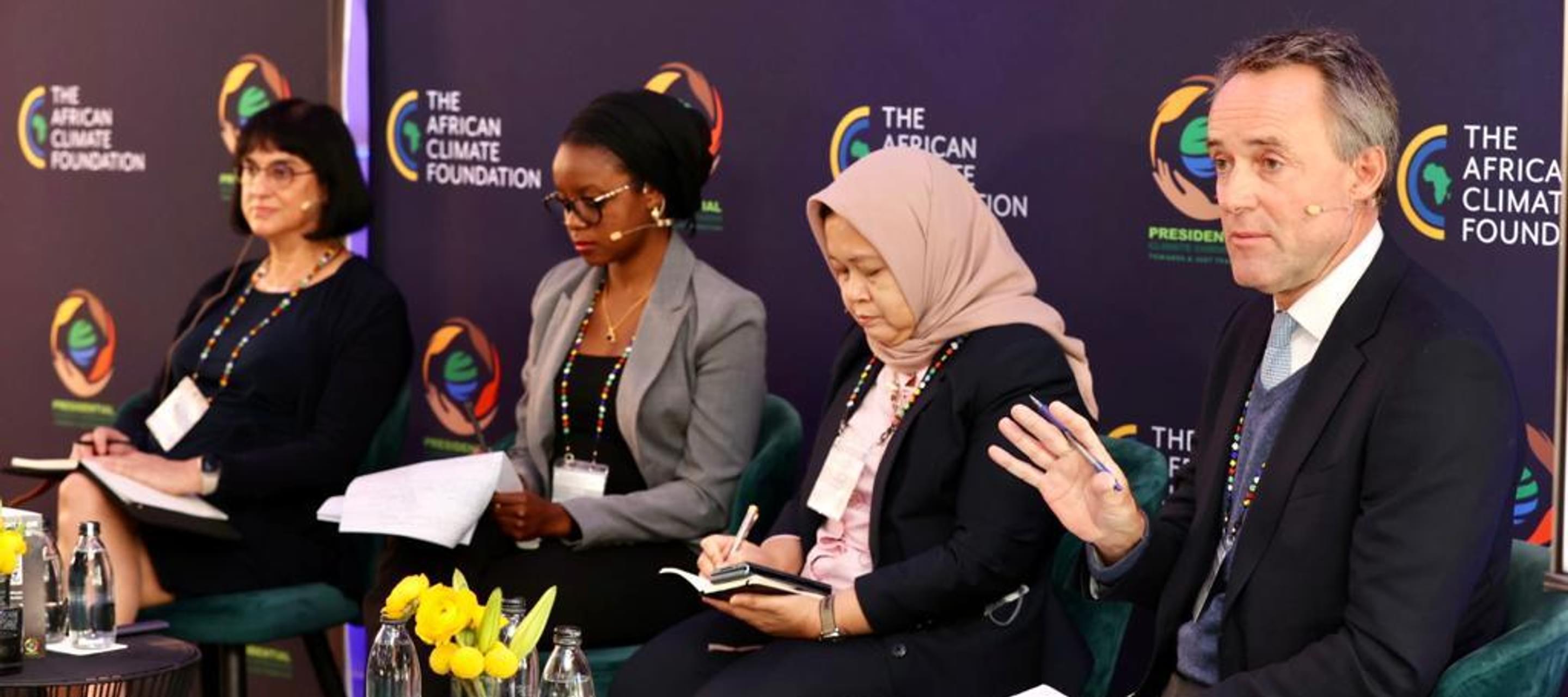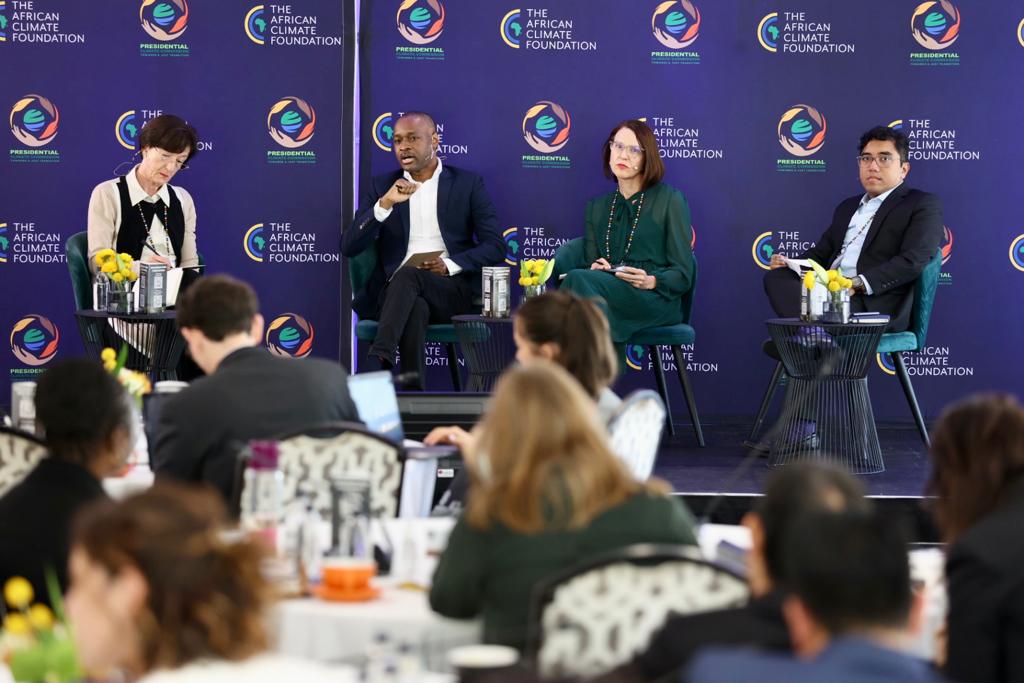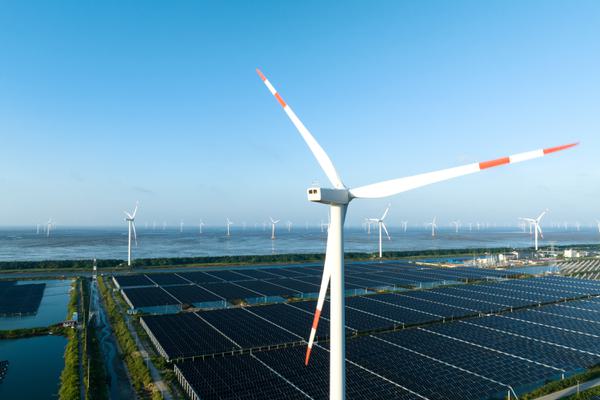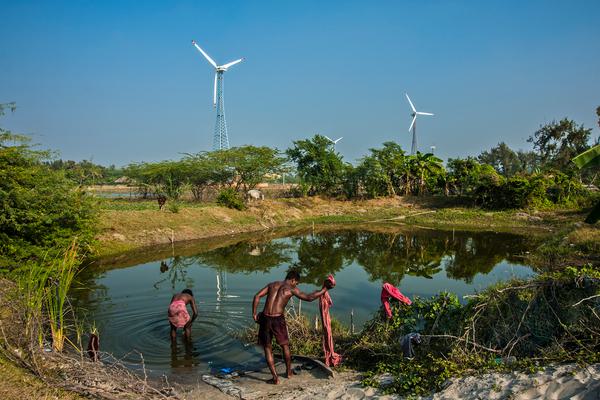One Year On – 5 Takeaways from South Africa’s Just Energy Transition Partnership (JETP)
20 October 2022

Whilst South Africa is one of Africa’s largest economies, it is also the most unequal country in the world, with extreme levels of unemployment and poverty. It is highly vulnerable to climate shocks, but also one of the world’s largest coal producers, in particular for its domestic electricity supply, which is plagued by regular power outages. Its public sector capacity is weak, but its apartheid history and negotiated settlement is seen to have laid a strong social base for constructing fairness and equity into the transformation of its energy system to achieve net zero by 2050.
This is the context for the country’s energy transition, and South Africa has become one of the most prominent test cases for how to form international partnerships and construct financial models that quickly and effectively support its transformation. This has come to be known as the Just Energy Transition Partnership (JETP). South Africa’s JETP was initiated at COP26 in Glasgow, when an “International Partners Group” (IPG) of France, Germany, the UK, USA, and EU announced their commitment to providing $8.5 billion in development assistance over the next three to five years to help South Africa get started down its net-zero path. At the same time, the South African government prominently embraced the “just transition” concept, meaning that national policy makers are seeking to utilise decarbonisation as an opportunity to also address long-standing inequality and historic injustices.
One-year into the South African JETP, IHRB was invited to a multistakeholder knowledge-sharing dialogue convened in Cape Town by the African Climate Foundation (ACF) on behalf of the South African Presidential Climate Commission (PCC). The event included a range of South African stakeholders, international philanthropies, as well as other governments at similar inflections points in their green industrialisation (in particular, Indonesia, Senegal, Nigeria, and the Philippines).
Here are some of our key takeaways around South Africa’s approach so far to designing its newly released Just Transition Framework and forthcoming Investment Plan, and the lessons it offers for others.
1. Varying visions of the “J” in “JETP”
Net-zero transitions will require multidimensional consideration of countries’ current levels of development, historic contributions to the climate crisis, industrial mix, and distribution of resources, workers, and communities, amongst other complex factors. No country’s decarbonisation and adaptation pathways will be the same, even amongst the high profile JETP countries.
For many country representatives, a just transition centres squarely on solving the energy access deficit. There are 800 million people in the world without any access to electricity, and 3.6 billion whose access quality is insufficient to keep warm, cook, or build a livelihood. The current energy infrastructure system in many countries is built on service delivery dependent on payment from those living in poverty who can’t afford it. This meant we heard varying visions of what “justice” looked like in overcoming this.
For many, the starting point is not one of coal, but of oil and gas, and rejecting any imposed development pathways prohibiting them from utilising newfound or untapped oil and gas reserves. This was quite simply how many in the room defined the “J” in any JETP they hoped to form – freely tapping oil and gas as a bridging fuel until their renewables prospects become commercially viable. Conversely, others stressed the importance of investment in adaption and resilience strategies to fight the effects of climate while facilitating a rapid transition away from all forms of hydro-carbon energy.
So it is clear that the energy mix will vary in every country and over time. That doesn’t mean however that there can’t be some universal principles applied across transition countries to ensure fairness and equity for workers, communities, and consumers in transition processes and outcomes, and in this regard we proposed throughout the dialogue that the international human rights framework has much to offer.
2. Global fairness and historic share
The USD $8.5billion South African package announced at COP26 is intended to catalyse much larger investment packages. A forthcoming World Bank Country and Climate Development report (CCDR) due later this month estimates South Africa’s energy transformation will require approximately 8.3 trillion ZAR (roughly $450 billion USD) – the first comprehensive costing of the entire transition. A PCC presentation indicated 4.2 trillion ZAR will go to mitigation efforts, 2.2 trillion ZAR to adaptation, and another 2 trillion ZAR for the “justice components”.
These enormous sums contrast starkly with the reality that investment levels into many emerging markets and developing countries have been shrinking for some time – well before COVID and the invasion of Ukraine amplified the energy security and affordability crises. So many discussants emphasised the importance of developed countries paying their fair share for developing countries to decarbonise or leapfrog fossil fuel development to go straight to a green industrial model. Foundational to this is the current inequity in the debt and borrowing landscape for developing countries. Many stressed the proportionately much higher cost of borrowing for African countries, based on a perceived arbitrary “premium risk” attached to their projects compared to other parts of the world. In the words of one speaker, the colonial trap that has transformed into a debt trap cannot be allowed to move into a carbon trap. It was clear to many in the room that until this systemic inequity is resolved, the notion of common but differentiated responsibility would remain unfulfilled.
3. Investment complexity and negotiating capacity
The dialogue then turned to more technical reflections on investment package composition, with an emphasis on sharing early lessons for negotiating the right kind of finance. A majority of decarbonisation and green industrialisation projects are not actually one single undertaking, but a suite of several interrelated projects. Each complementary part needs to be funded, though only some are commercially viable. So a blend of finance is needed – concessional capital, catalytic grant funding, impact investing, amongst others – all with different terms and conditions, and largely needing to be negotiated together, up front. Innovative and fit-for-purpose financing mechanisms are being negotiated in real-time for South Africa, and will need to be in every other country. Put in such terms, the complexity of the funding challenge becomes plain, as does the capacity and technical assistance challenges for governments. Inequitable and extractive financing terms are a clear and present risk for JETP countries given the pace of deal-making required.
Funding the “justice dimensions” of energy transitions was also seen as a challenge, with philanthropic organisations identified as key to filling this gap. This reflects a serious tension in achieving just transitions on the ground, if core financing packages cannot mainstream human rights due diligence and development opportunities within their design. Consider that just 2% of philanthropic capital goes toward climate action, let alone people-centred climate action. Philanthropies, whilst integral to a healthy and balanced ecosystem of financial actors playing different roles, cannot alone deliver on the funding required for robust social protection and development measures. As one discussant reflected, “this is 90% political, 10% technical – we will not automatically get what is ‘just’, we will get what we negotiate.”
 [Pictured left to right: Sue Lund, South Africa JETP Secretariat; Dr Muntaqa Umar-Sadiq, Nigeria ETO; Janice Johnston, South Africa Presidential Climate Finance Task Team (PCFTT); Edo Mahendraw, Advisor for the Coordinating Minister of Maritime Affairs and Investment, Indonesia | Image credit: African Climate Foundation]
[Pictured left to right: Sue Lund, South Africa JETP Secretariat; Dr Muntaqa Umar-Sadiq, Nigeria ETO; Janice Johnston, South Africa Presidential Climate Finance Task Team (PCFTT); Edo Mahendraw, Advisor for the Coordinating Minister of Maritime Affairs and Investment, Indonesia | Image credit: African Climate Foundation]
4. Engage and consult, transparently, despite commercial tensions
Significant engagement and consultation has gone into the creation of South Africa’s Just Transition Framework, a highly inspirational document for other countries to draw from. It has been created over the last two years by the Presidential Climate Commission (PCC), a high-level, centralised body with broad representation, mandated to manage the just transition process. Throughout late 2021, the PCC hosted thematic dialogues to gather inputs, publishing policy brief on topics including policy dynamics; the coal value chain; employment and livelihoods; finance; and water security. It commissioned a series of expert essays on adaptation and just transition, covering additional topics from psychology to waste pickers and agriculture. Once the draft Framework was published in February 2022, the PCC held eight public workshops, focusing on geographic locations expected to be most impacted, including Mpumalanga province, where most of the country’s coal production takes place. While participants in these seemed to value the opportunity to make their voices heard, many also voiced their distrust in the government and its ability to improve their lives. This tension was also visible in the knowledge-sharing dialogue we attended, particularly around South Africa’s still-draft investment plan, with civil society representatives emphasising a lack of transparency around the investment package terms to date – and policy makers countering that live and real-time negotiations currently hinder them from disclosing commercial terms.
Given the level of disruption these transitions will bring, tension within even the most open and robust engagement processes will be inevitable. The openness of the PCC and other South African policy makers to engage civil society leaders in constructively critical dialogue was heartening. It underlines the fact that embedding affected groups’ agency into the economic and industrial decisions that will significantly disrupt their lives is more art than science. But meaningful participation of all affected stakeholders will be what makes the difference if large-scale systems change processes are to successfully achieve their aims. The absence of such engagement will in all likelihood result in social disruption and resistance to climate action.
5. Learning-by-doing requires courage and continuous improvement
This emphasised a final cross-cutting theme that came through in the two-day dialogue: the need for bold and brave decision making, recognising that no best practice blue print exists for policy makers who are designing transition plans in real-time and against extraordinary urgency, timelines, and scale. As one stakeholder put it, countries like South Africa are trying to condense a 150 year process of industrial transition into the next decade. Transition, let alone just transitions, are not linear. Decision makers across national and subnational ecosystems will be learning-by-doing, and mistakes will be made that require rapid responses to remediate and learn from them openly so that others can benefit from their lessons and avoid their pitfalls.
Net-zero transitions represent a new phase of mass experimental governance. Ensuring inclusivity, continuous learning, and sharing, as the PCC has sought to do in a very short period of time, must be the common baseline globally.
Looking ahead: clarifying the international rules needed based on local realities
It was striking how differently country representatives defined the “J” in JETP, spanning the macro and micro levels. From IHRB’s perspective, it is clear that while net-zero transitions are inevitable, ensuring rights-based approaches to achieving just and equitable outcomes are not. This becomes all the more apparent when considering other major sectors requiring people-centred decarbonisation and adaptation, such as agriculture, the built environment, and hard-to-abate sectors, which are far behind the sophisticated dialogues taking place in the energy sector. Each will require distinct and fit-for-purpose approaches.
South Africa’s ongoing leadership in developing and implementing a just transition process should be welcomed and studied by all. This experience and those of others will be a major focus for IHRB’s own work on just transitions moving forward, in particular clarifying the international rules needed to achieve greater comparability, quality, and accountability across these efforts around the world.




